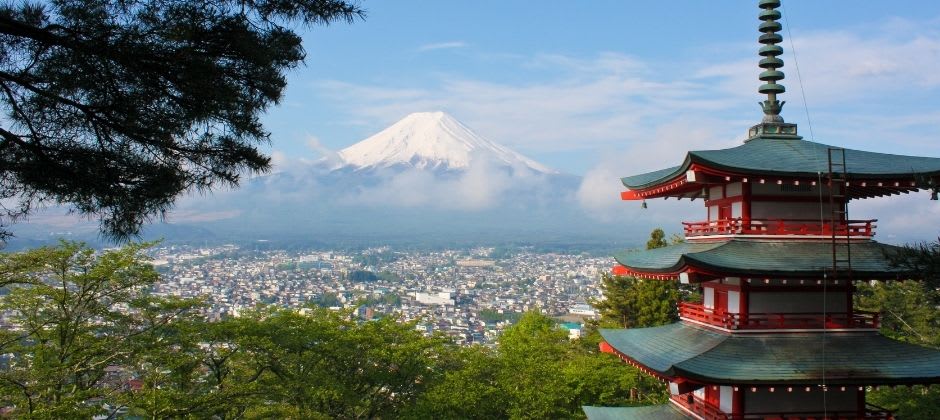Yes, you need a visa to study in Japan. The type of visa required is a student visa.
Studying in Japan offers a unique opportunity to immerse in its rich culture and advanced education system. Securing a student visa is essential for attending Japanese educational institutions. The visa process involves obtaining a Certificate of Eligibility from your chosen school.
This certificate proves your acceptance and supports your visa application. After receiving the certificate, apply for the visa at a Japanese embassy or consulate in your country. Ensure you prepare all necessary documents, including proof of financial stability and a valid passport. Planning ahead and understanding the requirements will help ensure a smooth transition to studying in Japan.
Types Of Student Visas
Understanding the Types of Student Visas is crucial for anyone planning to study in Japan. Japan offers different visas depending on the length and type of study. Below, we will explore the main types of student visas available.
Short-term Study Visa
A Short-term Study Visa is for studies less than 90 days. This visa is perfect for short courses or language programs. You do not need a sponsor for this visa. The process is quick and simple.
Key Points:
- Duration: Up to 90 days
- No sponsor required
- Suitable for short courses and language programs
Long-term Study Visa
A Long-term Study Visa is for studies longer than 90 days. This visa is ideal for university degrees or long-term courses. You need a sponsor, usually your school. The application process includes more steps.
Key Points:
- Duration: More than 90 days
- Sponsor required (usually your school)
- Suitable for university degrees and long-term courses
Here is a quick comparison table:
| Type of Visa | Duration | Sponsor Required | Purpose |
|---|---|---|---|
| Short-term Study Visa | Up to 90 days | No | Short courses, language programs |
| Long-term Study Visa | More than 90 days | Yes | University degrees, long-term courses |

Eligibility Criteria
Studying in Japan is an exciting opportunity. To apply for a study visa, you must meet specific eligibility criteria. These requirements ensure you are prepared for academic life in Japan.
Academic Requirements
First, you need to meet the academic requirements. You should have completed high school. This is usually equivalent to 12 years of schooling. Some institutions may require higher qualifications.
- High school diploma or equivalent
- Good academic record
- Letter of acceptance from a Japanese institution
Ensure your transcripts are accurate and complete. You may also need to prove your proficiency in Japanese or English. This depends on your course of study.
Financial Requirements
Next, you must meet the financial requirements. You need to show you can support yourself during your stay. This includes tuition fees and living expenses.
| Expense Type | Estimated Cost (per year) |
|---|---|
| Tuition Fees | $6,000 – $12,000 |
| Living Expenses | $10,000 – $15,000 |
You may need to provide bank statements. This shows you have the funds needed. Scholarships can also help meet financial requirements.
Application Process
Applying for a student visa to study in Japan can be a detailed process. Understanding each step and having the right documents is crucial. Here’s a guide to help you through the application process.
Required Documents
To apply for a student visa, you need several documents. Ensure you have the following:
- Passport: A valid passport with at least six months remaining.
- Visa Application Form: Completed and signed visa application form.
- Certificate of Eligibility: Issued by the Japanese immigration authority.
- Passport-sized Photos: Two recent passport-sized photographs.
- Acceptance Letter: From the Japanese educational institution.
- Financial Proof: Bank statements or scholarship award letters.
Steps To Apply
Follow these steps to apply for your student visa:
- Obtain the Certificate of Eligibility: Your school in Japan will apply for this on your behalf.
- Receive the Certificate of Eligibility: This process takes about one to three months.
- Prepare your Documents: Gather all required documents listed above.
- Submit Application: Submit your visa application to the Japanese embassy or consulate in your country.
- Pay the Visa Fee: Check the fee amount and make the payment.
- Wait for Approval: Visa processing times vary, but it usually takes a few weeks.
- Receive your Visa: Once approved, collect your visa from the embassy or consulate.
By following these steps and preparing your documents, you increase your chances of a successful application. Good luck with your studies in Japan!

Costs And Fees
Studying in Japan involves several costs and fees. You need to budget wisely. Costs include visa application fees and additional expenses. This guide will help you understand these costs.
Visa Application Fees
To study in Japan, you need a visa. The visa application fee depends on your nationality and visa type. Here’s a table showing average costs:
| Visa Type | Cost (USD) |
|---|---|
| Student Visa | 50-60 |
| Multiple Entry Visa | 100-120 |
Ensure you check the exact fee with the Japanese embassy in your country. Payment methods may include bank transfer or cash.
Additional Expenses
Besides the visa fee, you will encounter other costs. These include:
- Airfare: Flights to Japan can range from $500 to $1500.
- Accommodation: Expect to spend $300 to $800 monthly.
- Health Insurance: Health insurance is mandatory, costing around $20 to $30 monthly.
- Living Expenses: Food, transportation, and leisure can add up to $600 monthly.
Planning your budget carefully will help you manage these expenses. Remember, studying abroad requires financial preparation.
Post-arrival Procedures
Arriving in Japan for studies is exciting. But, there are important steps to follow after you land. These steps ensure your stay is legal and comfortable. Let’s break down the key post-arrival procedures.
Residence Registration
After arriving in Japan, you must register your residence. This is done at your local city hall. You need to complete this within 14 days of moving in. Bring your Residence Card and your passport. They will update your address on your card. You will also receive a My Number card.
Health Insurance
All residents in Japan must have health insurance. You have two options: National Health Insurance (NHI) or your school’s insurance. NHI is available at your local city hall. For NHI, you will pay a monthly fee. This fee is based on your income. If you have no income, you pay the minimum fee.
Your school may also offer health insurance. Compare both options. Choose the one that best suits your needs. Remember, having health insurance is not just a rule. It also protects you from high medical costs.
| Document | Purpose |
|---|---|
| Residence Card | Proof of legal residence |
| My Number Card | Identification number for social services |
| Health Insurance Card | Access to medical services |
Make sure to complete these steps quickly. It ensures your stay in Japan is smooth and worry-free.

Renewing Your Visa
Planning to study in Japan is exciting. But, don’t forget about renewing your visa. Staying in Japan requires valid documentation. Renewal is key to ensure you don’t face issues. This section will guide you through the process.
When To Renew
Always renew your visa before it expires. Start the process at least three months ahead. This gives you ample time to gather documents.
Renewing late can cause stress. You might face fines or even deportation. Ensure to mark your calendar. Keeping track of your visa expiration date is crucial.
Required Documentation
Prepare the necessary documents for renewal. Here is a list of what’s needed:
- Passport: Your valid passport.
- Residence Card: Your current residence card.
- Visa Application Form: Completed and signed form.
- Photo: A recent passport-sized photo.
- Proof of Enrollment: A letter from your school.
- Financial Proof: Bank statements showing you can support yourself.
Having these documents ready helps speed up the process.
Let’s look at this information in a table format:
| Document | Description |
|---|---|
| Passport | Your valid passport |
| Residence Card | Your current residence card |
| Visa Application Form | Completed and signed form |
| Photo | A recent passport-sized photo |
| Proof of Enrollment | A letter from your school |
| Financial Proof | Bank statements showing you can support yourself |
Keep these documents organized. This ensures a smooth renewal process.
Working While Studying
Many students wonder if they can work while studying in Japan. This section will answer your questions about working part-time during your studies. Understanding the rules and job types is crucial.
Part-time Work Rules
International students in Japan can work up to 28 hours a week. During school holidays, you can work up to 40 hours a week. You need a Work Permit from immigration services. This permit is often called a “Permission to Engage in Activity Other Than That Permitted Under the Status of Residence Previously Granted.” You must follow these rules strictly.
Types Of Permissible Jobs
Students can take up various part-time jobs. Here are some examples:
- Convenience store clerk
- Waiter or waitress
- Language tutor
- Retail assistant
- Office assistant
Avoid jobs in the nightlife industry. Jobs in bars, clubs, and adult entertainment are not allowed. Stick to safe and legal work options.
| Job Type | Allowed |
|---|---|
| Convenience store clerk | Yes |
| Waiter or waitress | Yes |
| Language tutor | Yes |
| Nightclub worker | No |
| Adult entertainment | No |
Always check job details before applying. This ensures you stay within legal limits.
Frequently Asked Questions
What Visa Do I Need To Study In Japan?
To study in Japan, you need a Student Visa. This visa allows you to enroll in Japanese educational institutions.
How Long Does It Take To Get A Student Visa?
Getting a Student Visa usually takes 1 to 3 months. The processing time depends on various factors, including your application completeness.
Can I Work On A Student Visa In Japan?
Yes, you can work part-time on a Student Visa. However, you need to obtain a work permit from immigration.
What Documents Are Required For A Student Visa?
Required documents include a valid passport, admission letter, financial proof, and completed visa application form. Additional documents may be requested.
Conclusion
Understanding visa requirements is crucial for studying in Japan. Ensure your documents are complete and applications timely. Research thoroughly and consult official sources for accurate information. A well-prepared application increases your chances of a smooth transition. Remember, proper planning can make your study abroad experience rewarding and stress-free.
